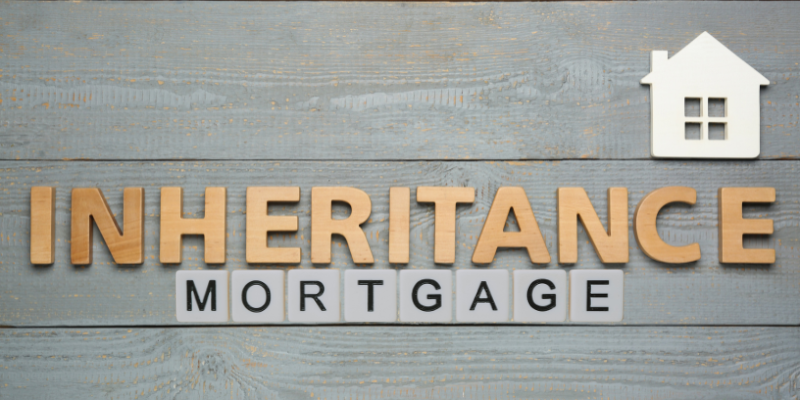
Understanding Mortgage Inheritance Laws in Cleveland, Ohio
When inheriting a mortgaged house in Cleveland, Ohio, it’s crucial to understand the applicable mortgage inheritance laws to navigate this complex process effectively. In Ohio, the transfer of property ownership upon death is typically governed by probate law, which determines how assets are distributed if there isn’t a living trust or other estate planning measures in place.
If you inherit a home with an existing mortgage, it’s important to know that the mortgage does not go away; instead, it becomes your responsibility. The federal Garn-St. Germain Depository Institutions Act allows heirs to assume the deceased’s mortgage under specific conditions without triggering the due-on-sale clause, meaning you can continue making payments without needing immediate refinancing. It’s essential for beneficiaries to promptly contact the lender and provide necessary documentation, such as death certificates and proof of inheritance, to ensure seamless communication and management of the loan.
Understanding these legal nuances helps avoid foreclosure risks and ensures compliance with both state and federal regulations during property transition in Cleveland.
If keeping the inherited house isn’t the right fit, selling may be a smart option to relieve financial stress and settle obligations quickly. Instead of dealing with repairs, listing fees, or long market timelines, Cleveland House Buyers in Cleveland can help by offering a fair cash purchase and handling the entire process, allowing you to move forward with peace of mind.
Legal and Probate Steps for Heirs of Mortgaged Homes in Cleveland, OH
When you inherit a mortgaged house in Cleveland, OH, you assume both legal responsibilities and practical steps to protect the property. The first priority is to review the mortgage terms and determine whether the loan can be taken or if refinancing may be required. Under the federal Garn-St. Germain Depository Institutions Act, heirs can generally assume the mortgage without triggering the due-on-sale clause, provided payments remain current.
It’s essential to notify the lender promptly and provide documentation such as the death certificate, probate papers, or letters of administration. Lenders may also require proof of your legal authority before discussing repayment or refinancing options. Clear communication helps prevent foreclosure risks during the transition.
In most cases, ownership must transfer through the probate process before the mortgage can officially be managed in your name. Probate involves validating the will, appointing an executor, and settling debts or liens tied to the property. If the deceased left no will, Ohio’s intestacy laws dictate who inherits. Only once ownership is clarified can heirs move forward with refinancing, continuing the existing loan, or selling the property.
It’s also important to evaluate the financial implications of inheritance, including property taxes, insurance, and potential federal tax considerations such as estate thresholds or capital gains if you later sell the home. Understanding Cleveland’s real estate market can further guide whether it makes sense to keep, rent, or sell the property after probate.
Because these steps can be complex, consulting with an estate attorney or financial advisor familiar with Ohio’s inheritance laws provides valuable guidance. Professional advice ensures compliance with probate requirements, lender obligations, and long-term financial planning, helping heirs protect the property’s value while meeting all legal responsibilities.
Evaluating the Value and Condition of an Inherited Home
When inheriting a mortgaged house in Cleveland, OH, it’s crucial to evaluate the property’s value and condition carefully. Start by obtaining a professional appraisal to determine the home’s current market value, which can be influenced by its location within Cleveland’s diverse neighborhoods.
Additionally, consider conducting a thorough inspection to assess the physical condition of the property. This inspection should identify any structural issues, necessary repairs, or updates that might affect both the livability and resale potential of the house.
Understanding these factors is vital for making informed decisions about whether to keep, sell, or rent out the inherited home. Furthermore, researching recent sales of comparable properties in Cleveland will offer insights into local real estate trends and help you gauge potential appreciation or depreciation.
It’s also important to review any existing mortgage terms tied to the property, as this financial obligation can significantly impact your options moving forward.
Financial Implications of Inheriting a House with a Mortgage
When inheriting a mortgaged house in Cleveland, OH, understanding the financial implications is crucial. The first step involves determining the outstanding balance on the mortgage and assessing whether there are any arrears or liens against the property.

It’s essential to communicate with the lender to understand your obligations and explore options such as refinancing or assuming the existing mortgage. Additionally, evaluating the current market value of the inherited house compared to its mortgage balance can influence your decision to keep or sell the property.
Inheritors should also consider potential tax liabilities, as well as ongoing expenses like property taxes, insurance, and maintenance costs. Consulting with a financial advisor or real estate attorney in Cleveland can provide valuable insights into managing these responsibilities effectively.
For heirs who decide that selling is the best route, working with cash home buyers in Cleveland and nearby cities can provide a fast and hassle-free solution. These buyers purchase properties as-is, cover closing costs, and help you avoid the stress of repairs or lengthy listing times, making it easier to settle financial matters quickly.
Tax Implications of Inheriting and Selling a Mortgaged House in Cleveland, OH
When you inherit a mortgaged house in Cleveland, OH, it’s important to understand the tax responsibilities that may arise. While most heirs won’t face federal estate taxes unless the estate’s value exceeds federal exemption limits, you’ll still need to stay current on local property taxes to avoid penalties or liens. If you decide to rent out the property, rental income will also be subject to federal and state income taxes, though certain expenses may qualify as deductions.
If you choose to sell the inherited property, capital gains tax rules will apply. Fortunately, heirs benefit from a “step-up in basis,” which means the property’s tax basis resets to its fair market value at the time of the decedent’s death. This often reduces the taxable gain significantly. For example, if the inherited home is sold soon after probate, little or no capital gains tax may be owed. However, if the property appreciates before you sell it, any increase above the stepped-up basis could be taxable.
In some cases, if you live in the inherited property for at least two of the five years before selling, you may qualify for the homeowner’s exclusion on capital gains under IRS rules. Keeping records of improvements and repairs is also helpful, as these can increase your adjusted basis and reduce taxable gains.
Because tax rules can be complex, consulting with a tax professional or estate attorney in Cleveland is recommended to ensure compliance with both federal regulations and local requirements. Proper tax planning helps heirs avoid unexpected liabilities and make informed financial decisions about whether to keep, rent, or sell the inherited house.
Options for Managing an Inherited Property’s Mortgage
When inheriting a property with a mortgage in Cleveland, OH, it’s important to understand your options for managing the existing loan. The first question most people must address is whether to keep the property or sell it—and how the home’s equity to sell factors into that decision.
If you decide to keep the house, it is probable that you will have to assume the existing mortgage. In this case, refinancing an assumed mortgage or refinancing to claim better conditions or get lower interest rates is also a possibility. You have to contact the lender to claim in hand the policies concerning payment takeover, settlement loan change, and the payment of the principal dues.
If selling is more practical, the needed equity to sell the home becomes a key factor. The mortgage can typically be cleared by selling the house for more than what is owed, provided the current market value exceeds the remaining loan balance. Another option is to retain the property as a rental, using rental income to help subsidize the mortgage payments while potentially building additional equity over time.
Working with a real estate lawyer or a financial planner in Cleveland can help you with the legal matters and how you can plan the taxes for the years to come for an inherited property. Keeping such matters in mind, an inherited property taken with the help of a mortgage is retained or liquidated in the market.
Refinancing Strategies for an Inherited Home Loan
When inheriting a mortgaged house in Cleveland, OH, understanding refinancing strategies is crucial for managing the financial implications effectively. Refinancing an inherited home loan can help reduce monthly payments, secure a lower interest rate, or adjust the loan term to better suit your financial situation.
It’s important to assess the current mortgage terms and compare them with available refinancing options from various lenders in Cleveland. Consider whether a cash-out refinance could be beneficial if you need funds for renovations or other expenses related to the inherited property.
Additionally, explore fixed-rate versus adjustable-rate mortgages to determine which option aligns with your long-term plans for the home. Consulting with a financial advisor or mortgage specialist familiar with Ohio’s real estate market can provide valuable insights into optimizing your refinancing strategy while ensuring compliance with local regulations.
If you’re weighing refinancing options or considering whether selling might be a better choice, don’t hesitate to contact us for guidance. Our team can walk you through the process, answer your questions, and help you make an informed decision tailored to your circumstances.
Selling vs. Renting: Decisions for an Inherited House with a Mortgage
When inheriting a mortgaged house in Cleveland, Ohio, one of the critical decisions to make is whether to sell or rent the property. Both options come with their own sets of advantages and considerations.
Selling the inherited house can provide immediate financial relief by using the proceeds to pay off the remaining mortgage balance and alleviate any ongoing financial responsibilities, such as property taxes and maintenance costs. This option is particularly beneficial if the housing market in Cleveland is favorable for sellers, potentially leading to a profit.

On the other hand, renting out the property can generate a steady stream of income if managed effectively, allowing the owner to cover mortgage payments while possibly realizing long-term appreciation in value. However, becoming a landlord involves understanding local rental laws in Cleveland and taking on responsibilities such as tenant management and regular property maintenance.
It’s essential to evaluate personal financial goals, emotional attachment to the home, and current market conditions before deciding whether selling or renting is more advantageous for an inherited mortgaged property in Cleveland.
If selling seems like the right move, working with investor home buyers in Ohio and neighboring cities can make the process faster and less stressful. These buyers often purchase properties in as-is condition, offer fair cash deals, and close quickly, helping heirs avoid the burdens of repairs, listings, and drawn-out negotiations.
Insurance Requirements for Maintaining an Inherited Property
While dealing with the inherited mortgaged house in Cleveland, OH, one of the important aspects to tackle regarding the property is the insurance requirements. Mortgage lenders usually require a homeowner’s insurance policy as a means to protect their investment as well.
Being the new owner, you must check the policy to see whether it needs modification and if the current policy is effective. It is also your responsibility to make sure that the policy is comprehensive enough to satisfy the lender’s requirements while also covering an appropriate insurance package that is needed in the state of Ohio, including fire, theft, and other natural disasters.
If you are planning to rent the property out or leave it unoccupied for an extended duration of time, you should also consider purchasing landlord insurance or a vacant home policy. Insurance agents should always be updated if there is a change in occupancy to avoid the issue of coverage gaps.
It goes without saying, keeping up with the spending towards these insurance policies along with the lender restrictions is a sure way to protect your investment.
Impact of Foreclosure on Heirs of Mortgaged Estates
In Cleveland, OH, inheriting a mortgaged house comes with a foreclosure risk and a debt of opportunities and challenges. Heirs to the estate of such a mortgaged property need to be proactive, as foreclosures are a possibility, and respond to that possibility.
If the inheritor of a house with a mortgage outstanding defaults on payment, the lender will initiate the process of foreclosure. Heirs, along with understanding the Ohio laws on succession and mortgage agreements, need to know how their obligations are structured.
Some of the remedies available, such as selling the property or refinancing the debt, will reduce the chances of a pending foreclosure. Heirs need to give themselves enough time to engage the lender on default or loan restructuring to discuss paths to foreclosure avoidance.
To avoid financial ruin, heirs need to protect their interests in the estate while being aligned with market professionals who specialize in Cleveland’s real estate. Such professionals, along with estate planning attorneys, will help in navigating multiple complex paths on the mortgaged estate.
Managing Jointly Inherited Properties with Siblings in Cleveland, OH
In Cleveland, OH, inheriting a mortgaged house with siblings is a paradox that can be both an opportunity and a source of tension. The lack of communication between heirs can be detrimental and can result in the unfair management of the property. In order to prevent losing value and to estimate the property correctly, you first have to acquire and calculate the correct and essential value of the mortgage as well as the terms, outstanding debts, and property value. For ongoing tax expenses, you have to account for insurance and maintenance as well.
Within inherited properties, one of the most prominent issues is deciding as a unit whether the property you have inherited will be kept, sold, or rented. The failure to make a decision can be highly detrimental to the property, particularly if mortgage payments have lapsed. Different financial expectations can result from varying contributions, which only increases the chances of conflict.
In order to avoid the issues that have been mentioned, heirs should have a discussion or a meeting as a family to set a common goal. In this regard, the involvement of a financial mediator or an estate attorney who has worked with Ohio’s inheritance laws can be relevant in settling this discord and setting clearer expectations. It is most urgent to seek legal advice in the event that the deceased left no apparent instructions in the will. Ohio’s probate laws will determine how the legal property will be shared among heirs, and these laws should be followed.
The strides made through transparency, mutual respect, and streamlined decision-making enable siblings to maximize, preserve, and harmonize the value of their inherited property.
Seeking Legal Advice for Complex Real Estate Inheritance Issues
The moment you are contacted by legal representatives regarding a deceased estate, especially as in the case of a mortgaged property in the city of Cleveland, Ohio, you appreciate the complexities involved in real estate inheritance. Having a dedicated and knowledgeable estate planner lawyer in the area is a great asset, as the attorney can help demystify the conditions of the mortgage and the possibly related liabilities.

They can also let you know whether refinancing the existing mortgage, for example, is in your best interest, or whether the mortgage is assumable and can be taken over. Counsel can help deal with possible taxes and, of course, Ohio probate laws in the case of so-called legal Ohio inheritance property taxes.
Importantly, an attorney can work with mortgage processors and other place workers so there are no gaps or conflicts in the estate settlement and inheritance in Ohio, especially over mortgaged homes. If you contact an attorney over estate property, you are likely able to understand the Ohio real estate probate and legal approach to it.
How Long Can a Mortgage Stay in a Deceased Person’s Name?
Inheriting a mortgaged property in Cleveland, Ohio, requires knowledge of how long a mortgage can remain in a deceased individual’s name. Usually, mortgages will stay in the name of the deceased homeowner until the estate has been settled or the title has been given to an heir or a beneficiary when the homeowner passes away.
Federal law, in addition to most mortgage agreements, allows heirs to take over an existing loan provided there is consistent payment of the mortgage, without activating the due-on-sale clause. What can be best described as a best practice is that a lender should be notified in a timely manner about the death of the homeowner, as well as the plans regarding the property.
In Ohio, as a result of probate proceedings, there is the possibility that time frames can be altered. Thus, it is best to speak to an estate lawyer who has knowledge of the relevant Ohio probate proceedings. If enough time passes without the mortgage being paid on, there is the possibility of mortgage foreclosure due to a “lapse in expectations” in payment.
Balancing the legal facets of inheriting a property alongside the financial responsibilities is made easier when one grasps the mortgaged property.
Who Is Responsible for the Mortgage After Death?
In Cleveland, OH, when inheriting a house with a mortgage, it is important to know who is responsible for the mortgage after the death of a property owner. Normally, the owner of the mortgage is the person inheriting the house.
In simpler terms, a house comes hand in hand with a mortgage, and failing to pay on it means it is awful to have the property foreclosed. Make sure you go over the mortgage contract and speak to a professional for probate or financial matters in Cleveland for clarification on these matters.
Also, it is vital to contact the mortgage lender to know what needs to be done after the death of the homeowner concerning the mortgage and what the next steps are. The lender usually has guidelines or other alternatives for inheritors of mortgage properties.
In the case where the property has many beneficiaries or multiple heirs, a decision needs to be made about where the responsibility to pay the mortgage lies or to sell the house. Ignoring any of these matters for a prolonged period of time is the surest way to end up with large legal issues or lose the property you have just inherited.
Have you recently inherited a house with a mortgage and aren’t sure what to do next? If selling feels like the right choice, Cleveland House Buyers can help you move forward quickly. We buy houses as-is, so you can sell fast without worrying about costly repairs or drawn-out processes. Our team provides fair cash offers, handles the details for you, and makes the transition seamless. Ready to explore your options or get an offer today? Call us at (440) 577-6552 for a no-obligation consultation.
Helpful Cleveland Blog Articles
- Optimal Months For Selling Your Home In Cleveland, Ohio
- Sale Of A Cleveland, OH Home Amidst A Pending Lawsuit
- How To Successfully Sell Your House At Auction In Cleveland, OH
- Expert Tips For Downsizing Your Home In Cleveland, Ohio
- Selling a Fixer-Upper Home In Cleveland, Ohio’s Real Estate Market
- Successfully Selling Your Cleveland, OH, Home With A Squatter
- Navigating Inherited Real Estate With Siblings In Cleveland, OH
- Strategies To Stop Foreclosure On Your Home In Cleveland, OH
- Refinancing Your Cleveland, OH, Home After Divorce
- Inheriting A Mortgaged House In Cleveland, OH
- Closing After An Appraisal In Cleveland, OH
- A Guide To Selling Your House In Cleveland, OH
- Can Heir Property Be Sold in Cleveland, OH
- How Much Does Home Staging Cost in Cleveland, Ohio
- Can I Rent Out My House During Divorce in Cleveland, Ohio

| MORTGAGE LOAN | MORTGAGE RATES | DISINHERITED | INHERITS | INHERITANCES | CHILDREN |
| CHILD | TAXED | THE BUCKEYE STATE | STATE OF OHIO | DEED | PRINCIPAL |
| DESCENDANTS | WITHOUT A WILL | TESTATE | INTESTATE | INTESTATE SUCCESSION | REVOCABLE LIVING TRUST |
| REVOCABLE TRUST | LENDING | OWNERSHIP INTEREST | MONEY | GIFT | STAKE |
| EQUITY | MARKET PRICE | HOME EQUITY | FORECLOSE | BORROWER | PARENT |
| BIOLOGICAL PARENT | CAPITAL GAINS TAXES | INSURED | INVESTMENT ADVISER | FINANCIAL ADVICE | COST BASIS |
| AFFIDAVITS | U.S. | THE UNITED STATES | INVESTING | FEES | UNDERWATER MORTGAGE |
| NEGATIVE EQUITY | MORTGAGE LIFE INSURANCE | MARRIAGE | SURVIVORSHIP | JOINT TENANCY | JOINT TENANTS |
| ACCOUNTING | TAX RETURN | SHORT SALE | PERSONAL FINANCE | EXPERT | |
| CREDIT SCORE | CREDIT CARD | LEGALLY BINDING | GUARANTEES | CONSUMERS | BLOG |
